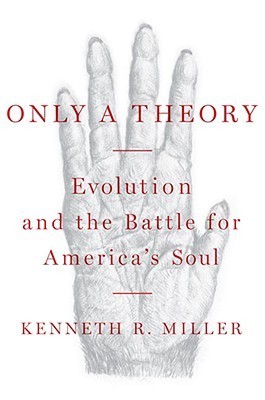What do you think?
Rate this book


256 pages, Hardcover
First published June 12, 2008
Miller is a fine writer who sharply addresses the details of the arguments about intelligent design creationism. When tackling old chestnuts such as the 'only a theory' complaint, or Michael Behe's argument for a maximum limit for the number of genetic mutations, or William Dembski's rehash of William Paley's watchmaker argument for complexity, Miller discusses the contemporary biological explanations while refuting the errors.Indeed, Michael Behe is not so much the villain of the book, which centers on the 2005 Dover evolution trials, as he is its comic relief; I'm willing to wager that never has the major proponent of one side of a debate in science been portrayed as being so comprehensively lost and stupid by his counterpart on the other side. He's left with no leg to stand on, his ideas and claims shown comprehsively in a court of law to be founded on...